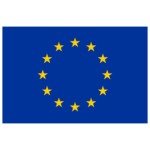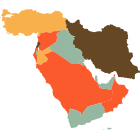Advising EU Strategic Framework for Economic Assistance to Lebanon's Private Sector
Background
Lebanon was entrenched in a severe economic, financial, social, and humanitarian crisis, worsened by the COVID-19 pandemic and significant political instability. The economic freefall was marked by cascading crises in public services, widespread business closures, soaring unemployment, and escalating socio-economic instability. Key public services such as energy, water, and wastewater were at risk of collapse, and there was a sharp increase in poverty and inequality. Recognizing the critical need for a strategic intervention, the European Commission commissioned Triangle to conduct a comprehensive analysis of Lebanon’s private sector. This project aimed to identify key areas for economic intervention, uncover opportunities for sustainable growth, and develop a strategic framework to transition Lebanon from a rentier economy to a more diversified, production-oriented economy. Focus sectors included agriculture, manufacturing, and tourism, with an exploration of potentials in the knowledge economy.
Triangle’s Assignment
- Evolution of the Economic Crisis: The project began its assessment by documenting the progressive decline of Lebanon’s private sector amidst significant socio-economic and political crises. This involved a detailed review of the sector’s status, identifying major disruptions caused by the economic downturn and political instability.
- Drivers of Economic Instability: The analysis identified several key drivers of Lebanon’s economic instability, including political unrest, fiscal deficits, and the compounded effects of the COVID-19 pandemic. These factors severely impacted critical sectors, leading to rising unemployment, business closures, inflation, poverty, and increased inequalities.
- Economic and Social Impacts: The socio-economic hardships further exacerbated by the crises led to increased social unrest and declining public trust in government institutions. The deteriorating economic conditions necessitated urgent and strategic economic assistance to stabilize and rejuvenate the private sector.
- Changing Dynamics: The analysis highlighted the changing dynamics within the Lebanese economy, noting a shift from traditional sectors to potential growth areas such as agriculture, manufacturing, and tourism. This shift required a nuanced understanding of the economic landscape to effectively channel support and interventions.
- Geographic Variability: Economic challenges and opportunities were found to vary across different regions of Lebanon. This geographic variability necessitated a targeted approach to address the unique needs and potentials of each region, ensuring tailored economic interventions.
- Urgent Need for Strategic Framework: The rapidly deteriorating economic context posed a serious threat to Lebanon’s stability, underscoring the need for a strategic framework to guide EU economic assistance. This framework aimed to provide clear, actionable recommendations for programming and policy at both national and local levels.
- Research Objectives: The project aimed to inform decision-makers by providing a detailed analysis of Lebanon’s economic landscape. This included identifying root causes, drivers, and trends affecting the private sector, with the goal of adapting programming, offering timely policy recommendations, and prioritizing economic recovery and sustainability.
- Methodology: The evaluation process entailed a comprehensive methodology, including quantitative data analysis, qualitative insights from key informant interviews, and participatory stakeholder workshops. This mixed-methods approach ensured a robust and well-rounded understanding of the economic challenges and opportunities.
- Capacity Requirements: The project required a team with a blend of expertise in economic development, private sector support, and regional knowledge. This included professionals experienced in conflict-sensitive zones and committed to sustainable and inclusive economic growth principles.
- Role of the European Commission and Responsibilities: The European Commission provided oversight and guidance throughout the project, ensuring the alignment of the strategic framework with EU priorities. Responsibilities included advising on deliverables, reviewing and validating findings, and facilitating stakeholder engagements.
Project:
Advising EU Strategic Framework for Economic Assistance to Lebanon’s Private Sector

Duration:
December 2020 – April 2021
Lebanon
